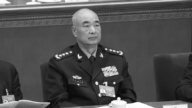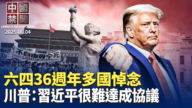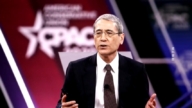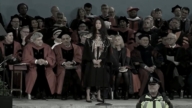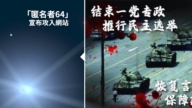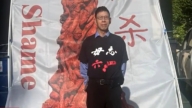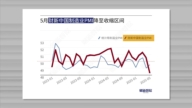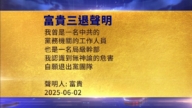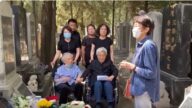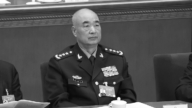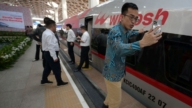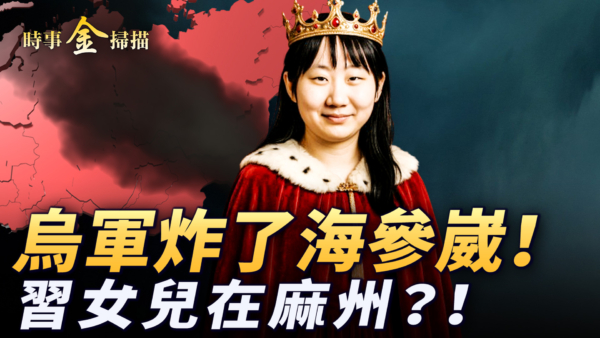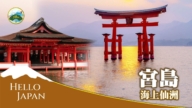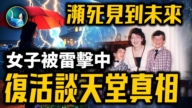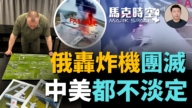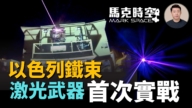【新唐人2012年12月29日讯】湖南省委书记周强日前在一场会议上,当着近千名干部说,“部分官员拿好处不办事,屁股一拍就走人。”他要求一定要严惩害群之马。不过学者指出,这种“运动式的反腐”,不可能解决根本问题,权力的分权和制衡才是根本的解决之道。
在12月25号的湖南省委经济工作会议上,省委书记周强说:有的把企业当成“唐僧肉”,随意向企业伸手,索拿卡要,甚至敲诈勒索……
讲到这里,周强甚至激愤的说:“有些部门、有些干部过去是要有好处才办事,现在就是拿了好处也不办事,喝完了酒,吃完了饭,泡完了脚,屁股一拍就走人,什么事也不办,什么问题也不帮企业解决!”“还有,一些部门靠检查评比索拿卡要,这个问题已经很严重甚至十分严重。”
上海商人谢丹:“所有人都会觉得,如果自己不贪、不贪欲,自己就亏了。因为自己好不容易坐到这个位置,费尽周折、费九牛二虎之力,甚至他的官位本身就是花钱去买来的,跑官跑来的。”
经常与政府部门打交道的谢丹表示,现在腐败已经渗透到了所有领域,所有官员都是有恃无恐,吃、喝、拿、要,手法翻新无以复加,也越来越隐秘。
举例说,谢丹去政府部门办事,被领到指定的饭店吃饭,可价格要比外边的贵出近2倍。谢丹以他商人的眼光指出:“这里一定有猫腻。”
外界认为,周强的发火,可能与“三一集团”被迫迁往北京有关。“三一集团”每年的产值高达800多个亿,同时也是湖南的纳税大户。
《财讯网》指出,无论是因为传说中遭到国有企业“中联重科”的挤对,还是“三一”自己说的“规避恶性竞争”,都暴露了湖南经济发展环境问题。以“三一集团”这样的规模都惧怕“竞争”,其他无数的中小民营企业,面临的环境之险恶就可想而知了:各种税费占去58%的利润,除去日常的索拿卡要,逢年过节送红包都送到手软。
湖南省纪委预防腐败办公室副主任陆群,在实名认证的微博中透露,他曾询问一名广东在湖南的投资商﹕“粤湘两地投资环境有何不同”,对方比喻﹕同样一个项目,在广东一次性送40万元,可能很快就办好。在湖南,送大额现金没人要,请吃饭、唱歌、洗脚天天来,红包、购物券照收不误,几个月过去了,40万元花完了,可能泡都没冒一个。
周强在会上要求:“省纪委、优化办要公开曝光一批典型案件,严肃惩处害群之马。各地也要查处一批典型案件,以儆效尤!”
原《河北人民广播电台》编辑 朱欣欣:“中共党内的反腐败,它不是为了老百姓,它都是为了巩固官僚体制的工作效率,对外巩固它的统治性。这种靠运动式的反腐不可能解决根本问题的。 中共应该借着目前反腐又一波的运动,进一步从制度的设计上,尤其在权力的分权和制衡上,要下工夫,解决根本的问题。”
“中央党校”教授周天勇接受媒体采访时说,90%民营企业只有偷税漏税才能存活。现实的社会环境,让中国企业家捞一把走人是普遍心态。
日前发布的《中国国际移民报告(2012)》显示,中国个人资产超过一亿元的企业主中,27%已经移民,47%在考虑移民,个人资产超过一千万元的人群中,近60%的人士已经完成投资移民或有相关考虑。
大陆自由撰稿人朱欣欣还指出,中国一党专制,没有监督,缺少制衡,贪官、庸官遍地,想治理好社会成了奢望。
采访/朱智善 编辑/宋风 后制/孙宁
Hunan Communist Officials Take Bribes for Doing Nothing in Return
Zhou Qiang, the Hunan Provincial Party Chief recently spoke
to hundreds of Chinese Communist Party (CCP) cadres.
Zhou criticized some officials who do nothing
in return, after taking bribes from enterprises.
Zhou Qiang has claimed to have severely
punished a number of implicated officials.
Commentators say that such a drive in
anti-corruption cannot truly solve core problems.
A system of checks and balances is the real solution.
On December 25, Zhou Qiang, Hunan’s Party Chief,
spoke at a provincial economic work conference.
Zhou commented that some officials
randomly ask for, or blackmail for money
from enterprises as if they were big fishes.
Reportedly, Zhou Qiang said angrily that in the past,
some officials handled affairs in return for taking money.
But now, some officials simply do nothing for enterprises,
even after having been paid or entertained by them.
Zhou also indicated that some government
departments take advantage of inspections
and assessments, in order to pocket money.
The problem has become serious and even severe.
Xie Dan, Shanghai businessman: “Every official
believes he’ll stand to lose if he is not taking bribes.
This is because it’s difficult for him to take the seat,
which may be directly bought with a lot of money.”
Businessman Xie Dan maintains frequent
contact with CCP government departments.
He reveals that corruption has now
penetrated into all areas in China.
All CCP officials have no fear about being entertained,
taking bribes and even demanding money from others.
Their tricks have become more innovative and secretive.
Xie Dan cited an example that he personally experienced.
When entertaining CCP officials in a designated
restaurant, Xie was billed for nearly twice market price.
He believed there must be illegal deals behind it.
Zhou Qiang’s anger was thought to be
related to SANY Group’s move to Beijing.
SANY is a large manufacturing
company, and large taxpayer in Hunan.
It has an annual output value of over 80 Billion yuan.
‘Caixun.com’ comments that SANY Group’s relocation
exposed problems of economic development in Hunan.
SANY reportedly claimed to be
“avoiding vicious competition”.
Commentators say that if SANY, a large-sized
business, is afraid of “competition",
it can be anticipated how bad an environment other countless
small and medium-sized private enterprises are facing.
According to the article, 58% of enterprise profits
are taken for various taxes and payment of fees.
Except for daily bribes, at festivals, enterprises have
to gift cash-filled red envelopes to CCP officials.
Lu Qun, Deputy Director of the CCP Corruption-Prevention
Office in Hunan, disclosed information within his micro-blog.
He once asked an investor from Guangdong,
“what’s the difference between Guangdong
and Hunan in terms of investment environment?”
The investor replied with a metaphor.
To get approval for the same project, in Guangdong, it
would be done for a lump-sum cash bribe of 400,000 yuan.
But in Hunan, big cash bribes don’t work.
Hunan officials accept specific entertainment
with meals, singing, foot-massages, plus red envelopes and shopping vouchers.
But nothing will be done after 400,000 yuan is spent.
Media reported that Zhou Qiang requested a number
of typical corruption cases to be exposed to the public.
Some implicated officials would be severely punished.
Reportedly, Zhou Qiang demanded to investigate similar
typical cases in other regions across Hunan, to deter others.
Zhu Xinxin, former editor of Hebei official radio station:
“The drive for anti-corruption isn’t done for ordinary people.
It is to cement the work efficiency of its
bureaucracy and the rule of the CCP.
Such an anti-corruption drive cannot
resolve the underlying problem.
The CCP should improve the political system, especially
checks and balances, to solve core problems.”
Professor Zhou Tianyong, from the CCP Central Party
School, told media that 90% of private enterprises in
China cannot sustain themselves, unless they evade tax.
This reality forces Chinese entrepreneurs
to reap profits and then disappear.
A report on Chinese International Migration (2012)
shows that among entrepreneurs with assets worth
over 100 Million RMB, 27% have emigrated.
A further 47% of them are considering emigrating abroad.
Among people with personal wealth over 10 million RMB,
nearly 60% have emigrated or have decided to emigrate.
Zhu Xinxin indicates that one-party rule has made
China lack a watchdog, with no checks and balances.
The country is filled with corrupt and incompetent officials.
He says that healthy governance in China
has now become a luxury for Chinese people.


